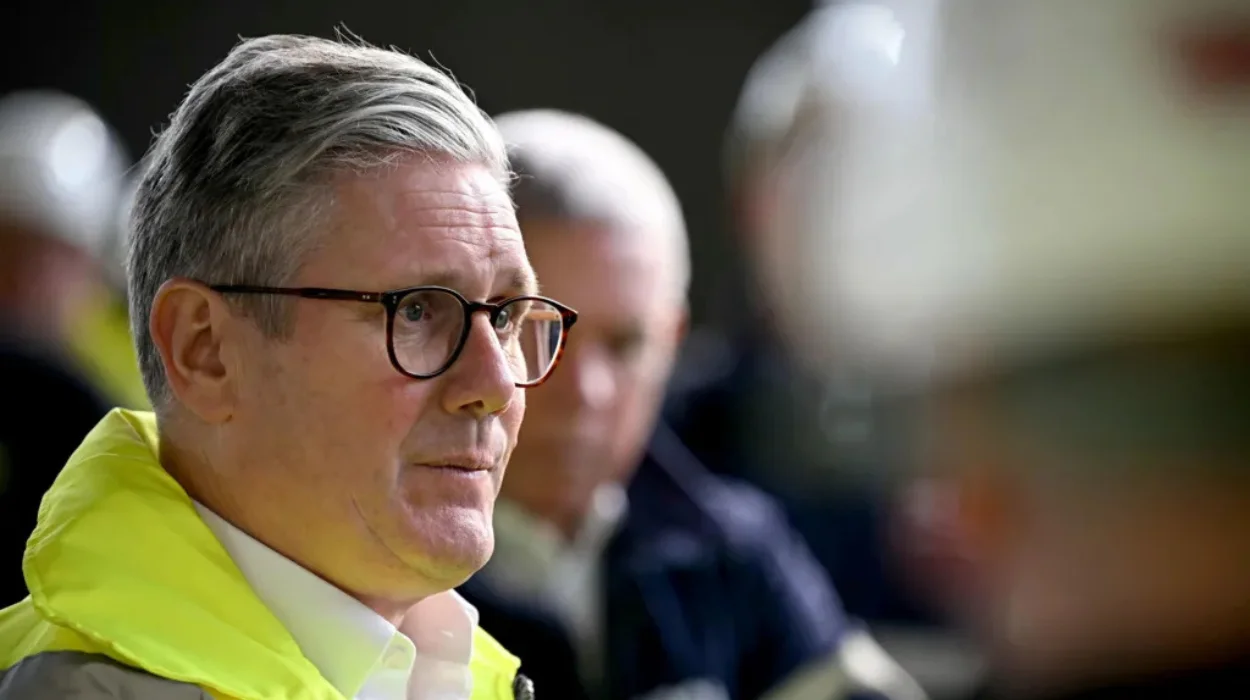UK (Parliament Politics Magazine) – Nick Timothy, a Conservative MP, has warned that deploying UK forces under a peacekeeping plan could risk direct conflict with nuclear-armed Russia.
A senior Tory MP has urged restraint in sending UK forces to Ukraine, stating that doing so could escalate tensions.
What did Nick Timothy warn about deploying UK troops to Ukraine?
Raising concerns over military involvement, Nick Timothy has sounded the alarm over Britain’s peacekeeping proposal, warning that British forces could be put at risk.
During an appearance on Chopper’s Political Podcast, ex-Number 10 chief of staff Mr. Timothy stated,
“Peacekeeping sounds fluffy, but it’s not like blueberries and like handing out sweets to kids. It means if Russia attacks, that we fight Russia.”
The former chief of staff to Theresa May, now the MP for West Suffolk, stated that Britain must assess its national interests before sending forces to Ukraine.
He stated,
“I’m quite anxious about some of these commitments may be made in haste, about putting boots on the ground in Ukraine,
adding,
“To be clear, that is a country outside Nato. Peacekeeping sounds fluffy, but it’s not like blueberries or handing out sweets to kids. It means if Russia attacks, we fight Russia.”
Mr Timothy said,
“Russia is obviously a serious military power with nuclear weapons, and I think that’s something to worry about.”
The Tory MP stressed the importance of careful consideration, highlighting that both the UK and Russia have nuclear capabilities.
He stated,
“If we step back and we think about what the true strategic threats are for Britain, we should be thinking about the national interest.”
During the podcast, former Number 10 chief said,
“Yes we’re committed to collective security, but we obviously have to think about the national interest above everything in strategic terms. For us, Russia is a threat, but it may not be the greatest threat. I mean, China is a very serious threat.”
Referring to migration issues, Mr Timothy argued that the debate should focus on removing certain individuals from the country.
He claimed,
“There’s this huge question about our kind of cultural identity and social coherence as a country when it comes to things like immigration and assimilation of migrants.”
The Conservative MP stated,
“And to be frank, part of the immigration debate in the future will also need to be about getting some people to leave the country,”
adding,
“I’m not necessarily just talking about deporting… Basically if people come here on time-limited visas and they’re not contributing, then they should leave at the end of their visa.”
What did Keir Starmer say about deploying British troops to Ukraine?
Last month, Keir Starmer declared that the UK is “ready and willing” to deploy its armed forces to Ukraine as part of a peace deal.
He stated that the decision to deploy British servicemen and women “in harm’s way” was made with careful consideration and not taken lightly.
The Labour leader stated,
“The UK is ready to play a leading role in accelerating work on security guarantees for Ukraine. This includes further support for Ukraine’s military – where the UK has already committed £3 billion a year until at least 2030.”
What did Keir Starmer say about supporting Ukraine and securing peace?
At a defense summit on March 2, 2025, Keir Starmer stressed the urgency of supporting Ukraine to secure lasting peace. He confirmed that Britain and France would lead a “coalition of the willing” to help bring an end to the conflict.
He said that any sustainable ceasefire would require collective efforts with the United States to deter Russian aggression. Mr. Starmer also worked on mending diplomatic relations between Ukraine and the US.
Will the UK continue to provide intelligence support to Ukraine after the US cut off?
The UK will maintain intelligence aid for Ukraine despite the recent halt in US intelligence sharing. However, with limited resources from London and other European allies, compensating for the United States’ loss will be a major challenge.
Sources revealed on Thursday that the UK will continue offering its assessment of raw intelligence data. However, under standard intelligence protocols, it will refrain from directly passing on US information acquired through longstanding intelligence-sharing partnerships.

